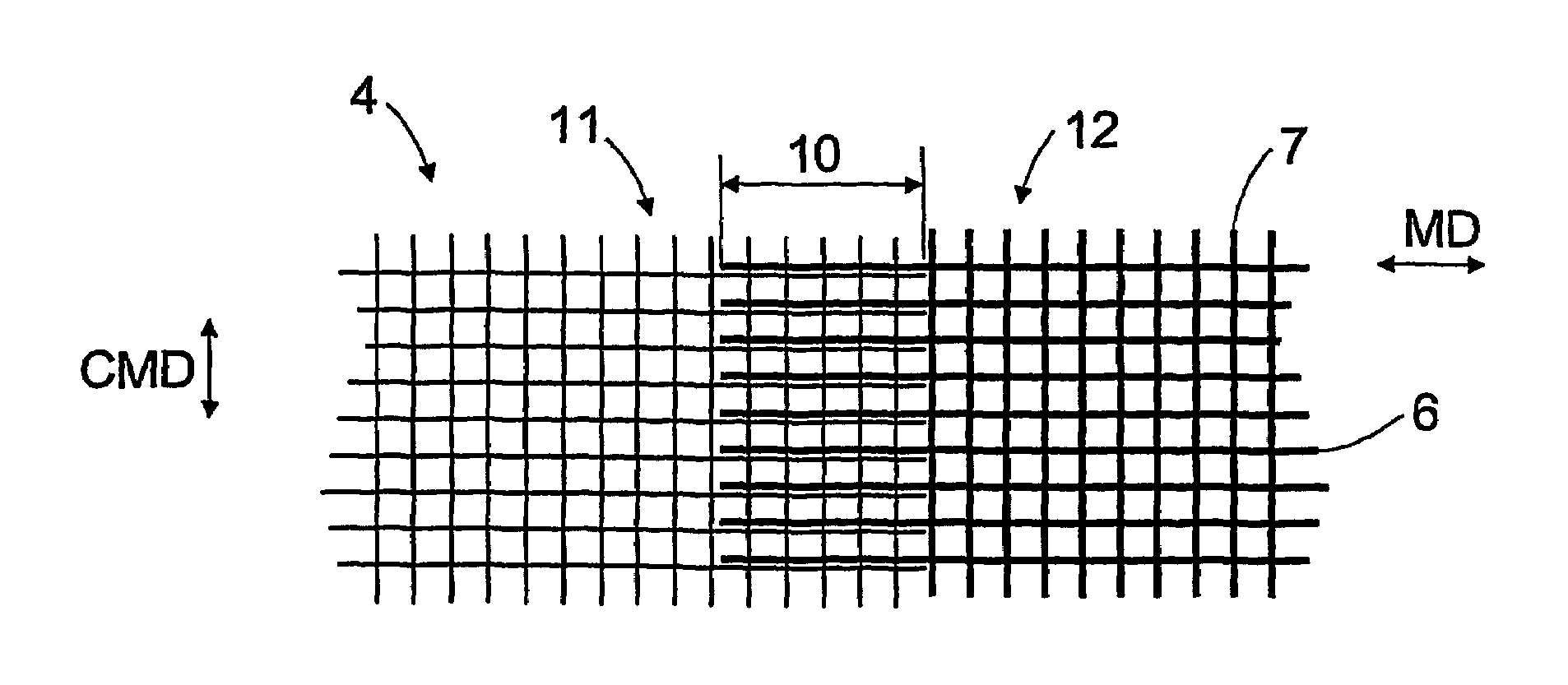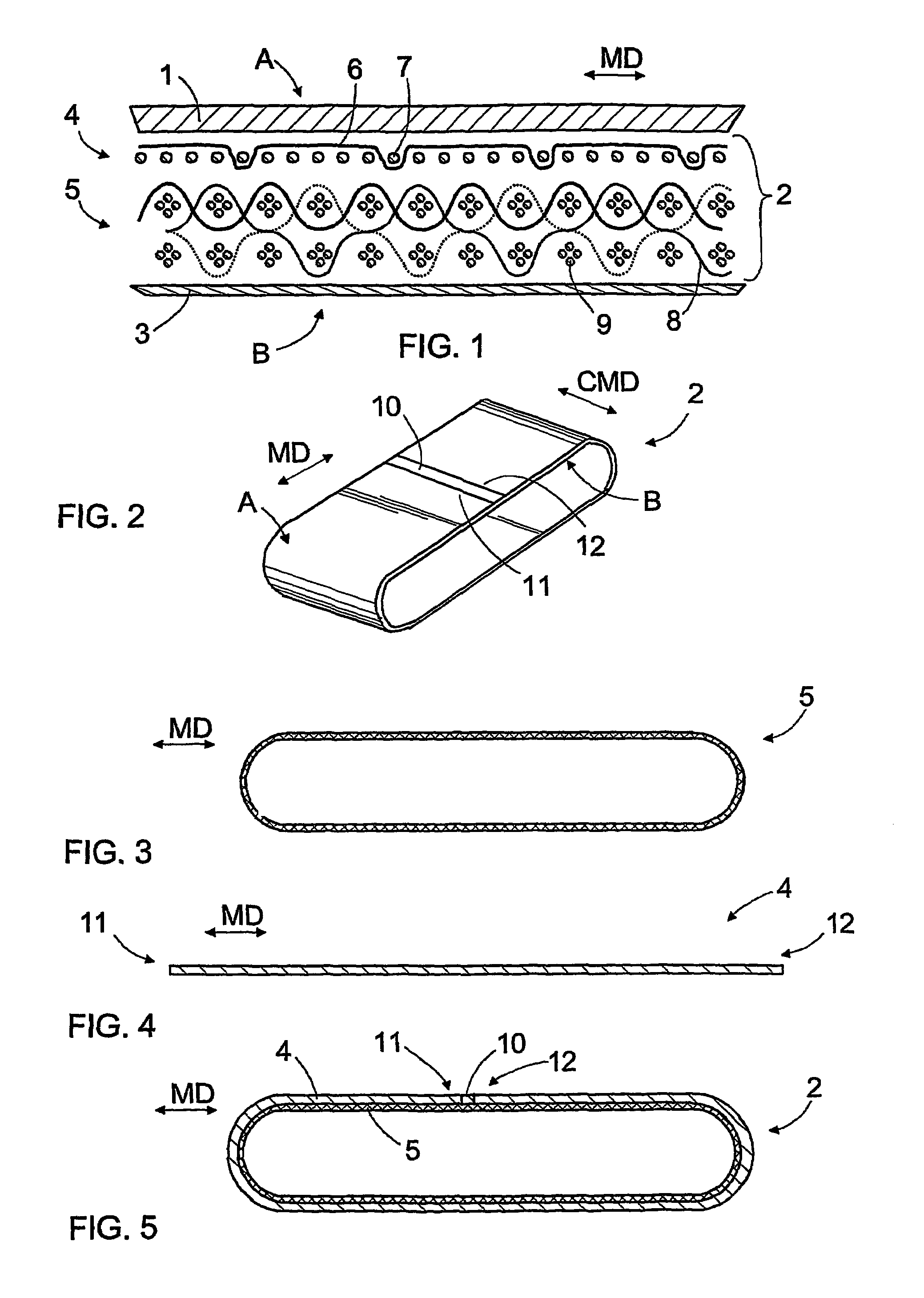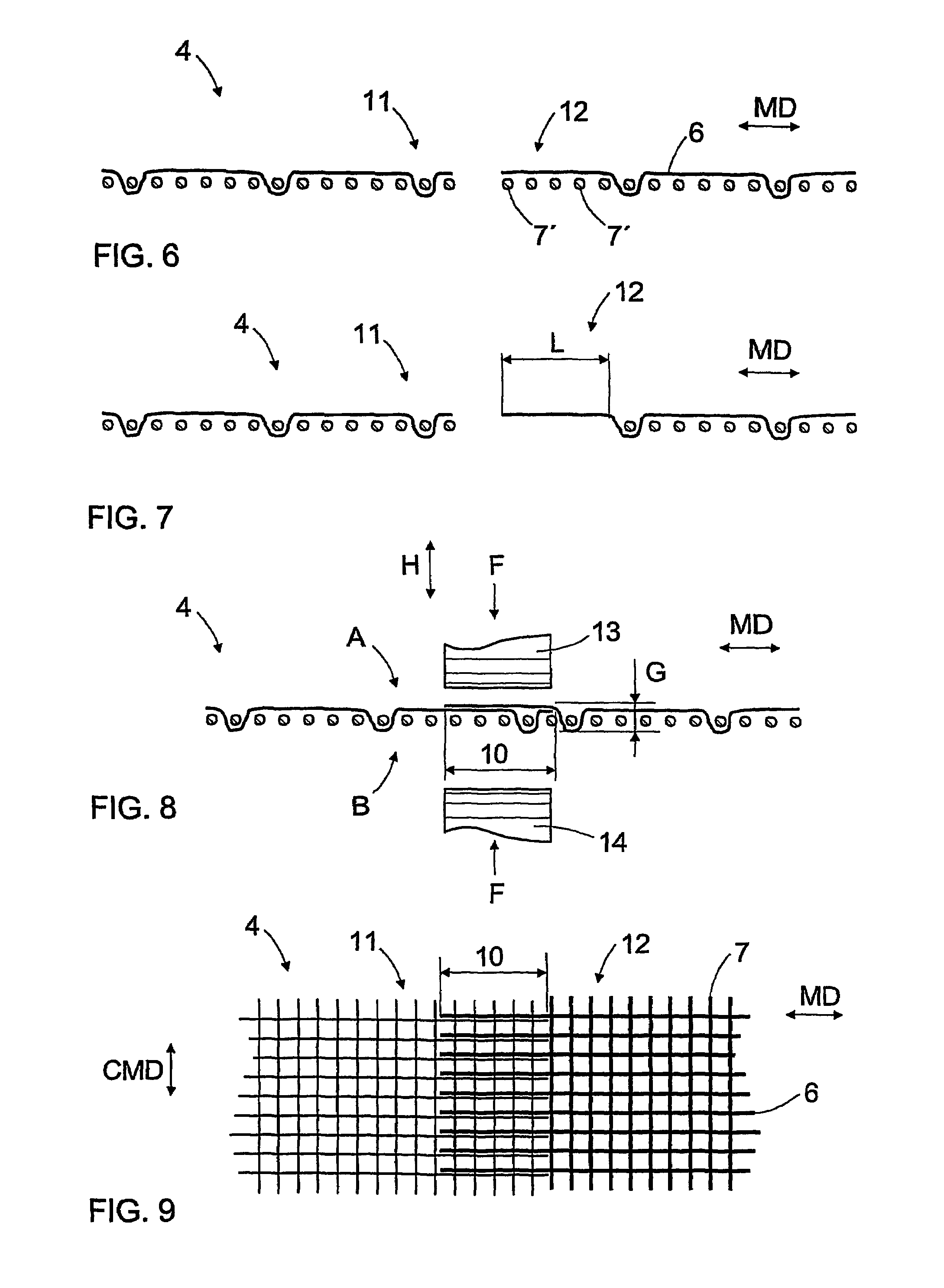Method of manufacturing a press felt, and a press felt, with the shape of a closed loop
a technology of press felt and closed loop, which is applied in the direction of press section, knitting, weaving, etc., can solve the problems of limiting the length of the base fabric to be manufactured, affecting the quality of press felt, etc., so as to facilitate and speed up the manufacture of a planar component, firm and quick manufacturing, and easy to automate the effect of implementation
- Summary
- Abstract
- Description
- Claims
- Application Information
AI Technical Summary
Benefits of technology
Problems solved by technology
Method used
Image
Examples
Embodiment Construction
[0029]FIG. 1 illustrates a press felt according to the invention as a section in the paper machine direction MD. The felt illustrated in the figure comprises four layers attached to one another. On the felt surface A facing the web, there is a first batt fibre layer 1 as the outermost layer. Below the first batt fibre layer, there is a base fabric 2 consisting of two components, and further at the bottom of the felt, i.e. on the surface B facing the paper machine, there is a second batt fibre layer 3. The first batt fibre layer 1 prevents the generation of markings, i.e. a pattern caused by the weave of the base fabric, onto the web surface. In addition, water retention properties of the felt can also be affected by batt fibre. The first batt fibre layer 1 may consist of two or more thin layers, in which case there may be finer batt fibre on the surface of the batt fibre layer 1 and coarser batt fibre below it. The second batt fibre layer 3 at the bottom of the felt is not necessary...
PUM
| Property | Measurement | Unit |
|---|---|---|
| length | aaaaa | aaaaa |
| length | aaaaa | aaaaa |
| width | aaaaa | aaaaa |
Abstract
Description
Claims
Application Information
 Login to View More
Login to View More - R&D
- Intellectual Property
- Life Sciences
- Materials
- Tech Scout
- Unparalleled Data Quality
- Higher Quality Content
- 60% Fewer Hallucinations
Browse by: Latest US Patents, China's latest patents, Technical Efficacy Thesaurus, Application Domain, Technology Topic, Popular Technical Reports.
© 2025 PatSnap. All rights reserved.Legal|Privacy policy|Modern Slavery Act Transparency Statement|Sitemap|About US| Contact US: help@patsnap.com



